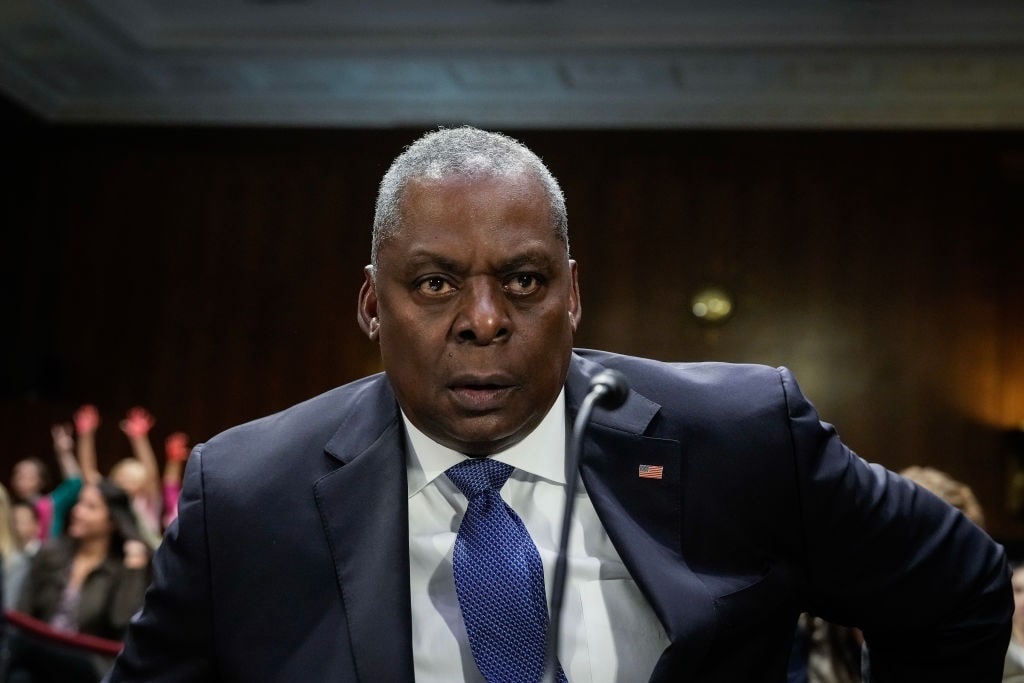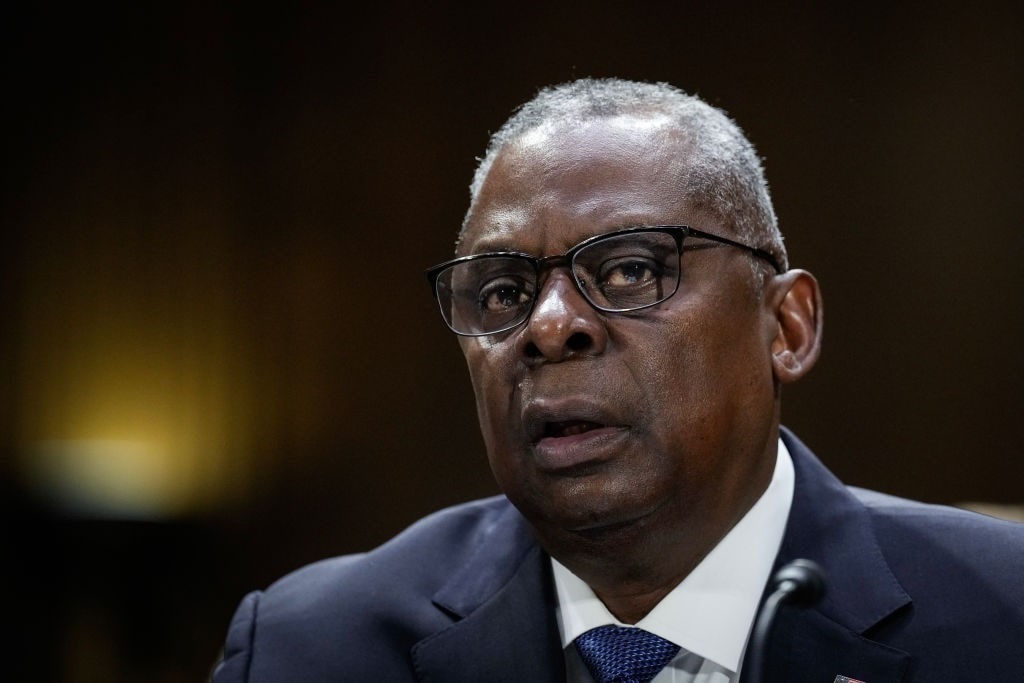As the ramifications sink in regarding Secretary of Defense Lloyd Austin’s decision to keep his recent hospitalization a secret, questions of the worst kind are arising. When the story first broke about Austin being in Walter Reed National Medical Center’s intensive care unit, the Pentagon press corps raised alarm about not being told. Now, the serious consequences of a national security leadership breach are being voiced.
The White House and Defense Department downplayed the secretary’s medical condition and failure to notify the president, the National Security Council, and the Pentagon press corps. All the while, the Associated Press reported, Deputy Secretary of Defense Kathleen Hicks – who is authorized to act in Austin’s absence — was vacationing in Puerto Rico.
Austin Unconcerned About Absence?

Lloyd Austin (Photo by Drew Angerer/Getty Images)
So why is this incident a big deal? There are issues of continuity of operations and of government. Suppose the United States experienced a cataclysmic disaster, rendering the nation’s infrastructure useless. Wouldn’t it be a good idea to know where the heads of the essential government agencies are – particularly the secretary of defense?
Since there was no mention or leaked information from principal staff assistants, undersecretaries, direct reports, and administrative staff, perhaps they didn’t know, either. Suppose a Senate-confirmed Cabinet-level official is incapable of executing the duties of the office. In this case, the nation’s leadership must know the succession of who is responsible for the Defense Department in the absence of the boss.
According to 10 USC 132, “The Deputy Secretary shall act for, and exercise the powers of, the Secretary when the Secretary dies, resigns, or is otherwise unable to perform the functions and duties of the office.” This accrues automatically without an official letter required to delegate the authority of functions and duties. In the Department of Defense, the order of succession, according to former President Trump’s Dec. 10, 2020, Executive Order (EO), is the deputy secretary, the secretaries of the military departments (based on seniority), and the undersecretary for policy. The Trump EO is the most current on record, as revealed after a search of the Biden EOs. Again, it is critical for those in line to know when the principal is unavailable.
According to the Associated Press, Hicks was unaware for four days that she was responsible for leading the Department of Defense. Since the Pentagon has not shared with the American public the nature of Austin’s medical problem, speculation about whether he was anesthetized at any point or incapacitated in any other way is fair. Had China chosen this time to invade Taiwan, or if Iran-backed Houthi terrorists had hit a US warship in the Red Sea in a drone attack, who would have been the authority in the Pentagon? And would that person even know?
Austin’s Secretive Absence
Some reactions got heated. “Failed Secretary of Defense Lloyd Austin should be fired immediately for improper professional conduct and dereliction of duty. He has been missing for a week, and nobody, including his boss, Crooked Joe Biden, had a clue as to where he was, or might be” was former President Donald Trump’s view in a posting on Truth Social. Congressional leaders were unhappy with Austin’s decision to keep his time in the hospital a secret. In a joint statement, the chairman and ranking member of the House Armed Services Committee, Reps. Mike Rogers (R-AL) and Adam Smith (D-WA), said:
“(W)e are concerned with how the disclosure of the Secretary’s condition was handled. Several questions remain unanswered, including what the medical procedure and resulting complications were, what the Secretary’s current health status is, how and when the delegation of the Secretary’s responsibilities were made, and the reason for the delay in notification to the President and Congress. Transparency is vitally important. Sec. Austin must provide these additional details on his health and the decision-making process that occurred in the past week as soon as possible.”
At the moment, the White House is protecting Austin, but it’s unclear if the president can continue to make excuses for the secretary’s bad judgment. “Biden and his team have been adamant that Austin remains in good standing, despite not informing the White House or his deputy of his hospitalization for three days,” Politico reported. Nonetheless, failing to inform key national security leadership, including the commander-in-chief, was a serious professional error. At best, it shows a fundamental lack of sound decision-making. At worst, Austin displayed a limited grasp of the responsibilities of his office.
The views expressed are those of the author and not of any other affiliation.







